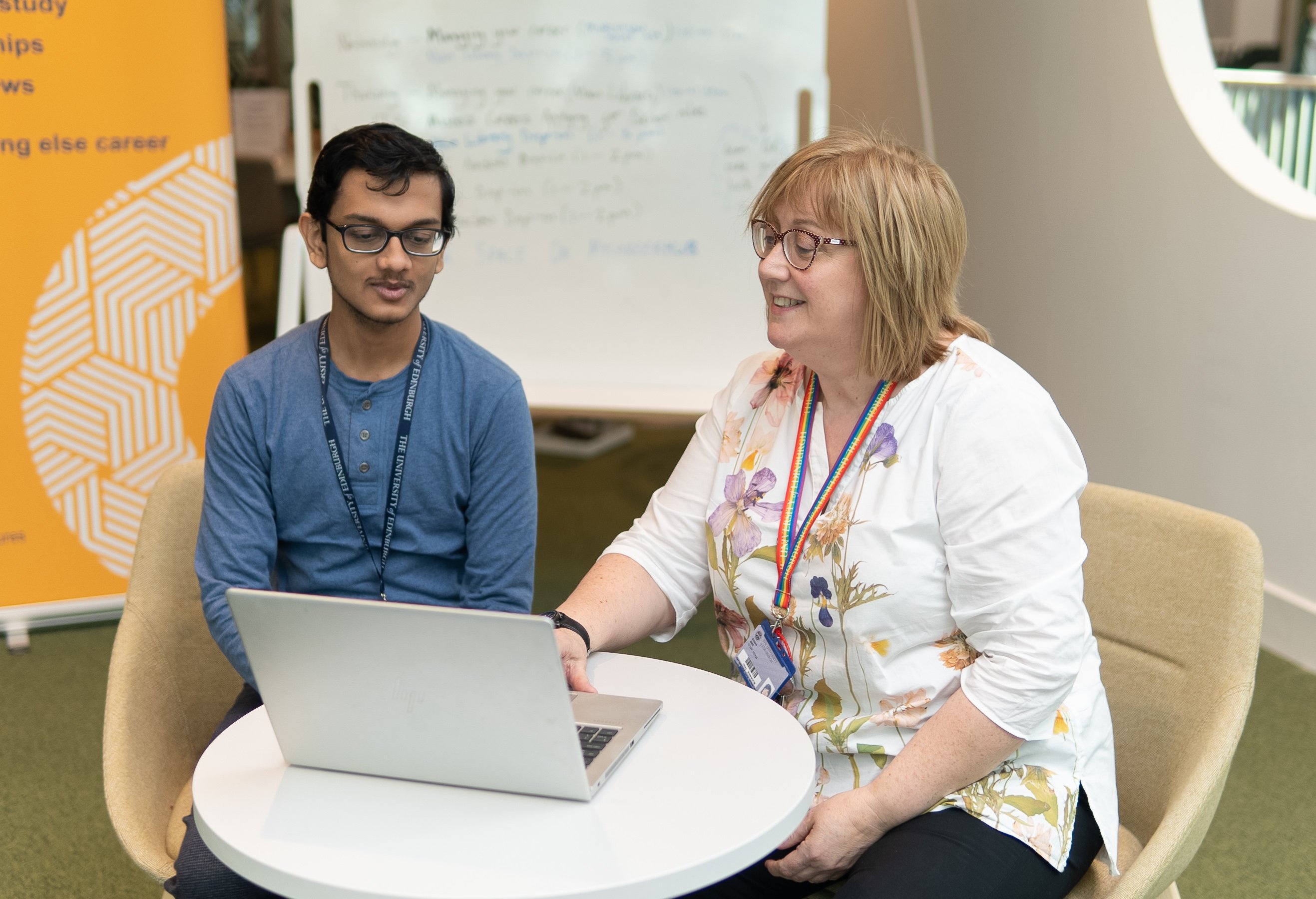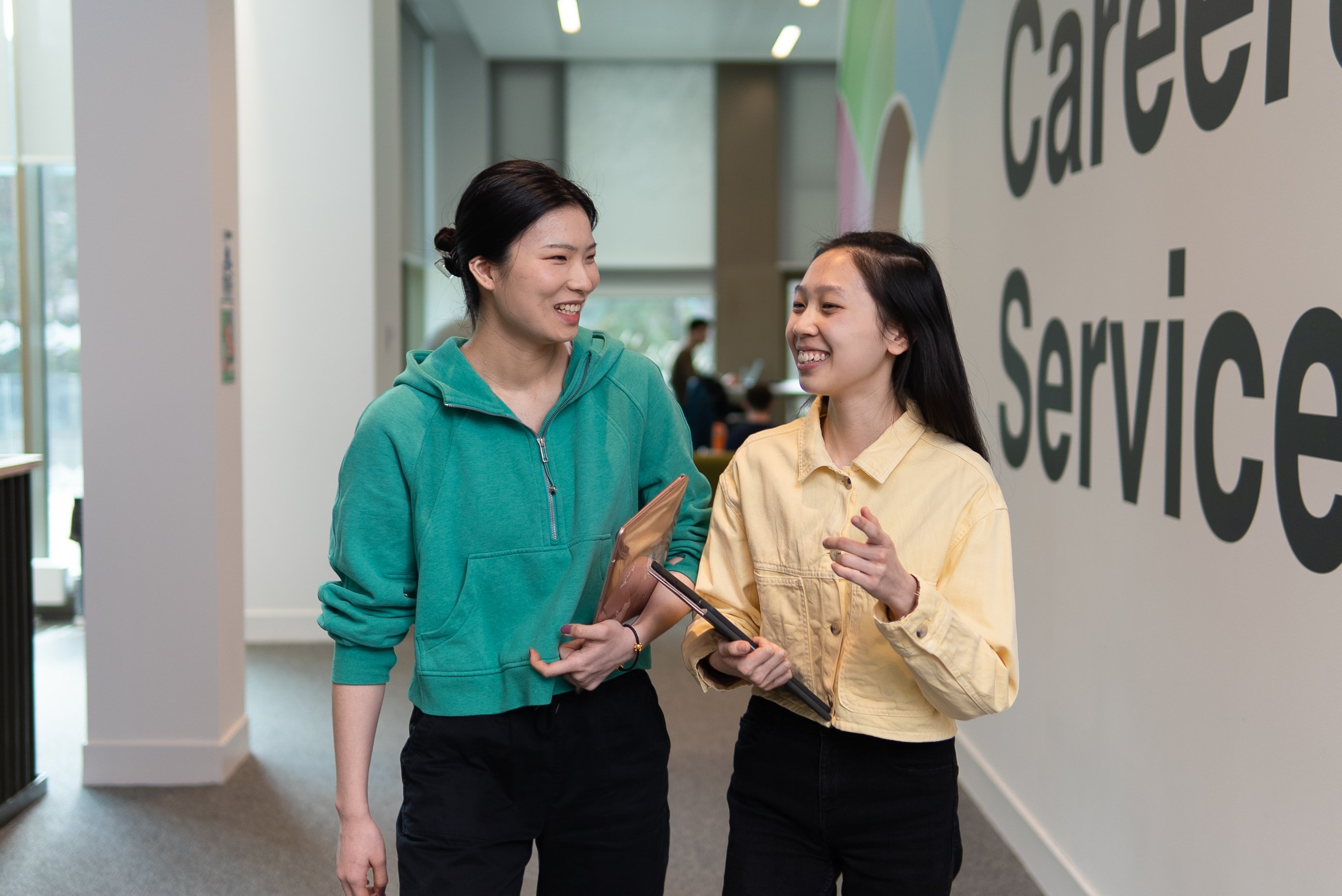Career support at university
University is a critical time for developing your future career. As an international student in the UK, you can access a wealth of support from your university and their dedicated careers teams. You’ll be able to get help on everything from improving your job application process, finding work experience while you’re studying, or getting a graduate role in your chosen industry.
Careers services
Every university in the UK has its own careers service. They exist to help students improve their job prospects and find work. They might also be called the careers team, careers advice, or the careers and employability service.
These careers teams are usually based in your university’s students’ union or student advice hub. You can visit them for in-person, 1-to-1 appointments, or contact them via phone or email. Most careers teams also maintain a suite of useful resources on their webpage, ranging from live job listings to guides and templates for applying to jobs.
How they can help
Career advice
Career support teams are experts in helping you understand the job markets that you’ll be entering after your studies. They can advise you on things like:
- The different careers open to you as a graduate in your field
- In-demand skills that you can build during your studies
- Identifying your strengths, weaknesses and interests
- Recommending training or work opportunities for you to apply to, such as:
- Work experience
- Internships
- Volunteering
- Research programmes
- Part-time work
- Graduate jobs
- Advice on complex or specialised applications
- Starting your own business or enterprise

Writing or improving your CV
Your CV (or resume) is a record of your education and achievements to date. It’s one of the most important things that potential employers look at during your application. The format, contents and style of a CV might differ from what you’re used to when applying to jobs in your home country.
Your university’s careers team can help you build the best CV possible. They can provide feedback on your CV, recommend additional experience that might be useful to add, help you shape it to the opportunities you’re applying to, and advise on formatting. We also have some help on CV writing, creating cover letters to accompany job applications, and a CV Builder tool.
Searching and applying to jobs
When you’re ready to start finding work, your careers team are the best place to start. Most universities have a jobs board where you can browse a range of opportunities, often focused on jobs at the university and its academic departments.
The careers team can also recommend specific companies and roles to apply for. Your university might have connections to certain employers in your field, giving you an advantage in your application as a result.
You’ll also be able to get advice on your approach to finding work, including help with writing cover letters, navigating assessment centres, and using job search tools.
Career and networking events
University careers teams host a range of events through each calendar year, all designed to help students discover potential careers and connect with employers.
These include jobs fairs and careers fairs, networking events, and lectures or talks from professionals or companies in a specific field. Some of these may also be arranged specifically for your academic department to really target the type of employers who are invited.
Be sure to look up your careers team’s schedule of events and sign up to any that interest you.
Finding work experience during your studies
Working at your university
Universities employ students in all sorts of part-time roles. They’re perfect for students who want to work alongside a busy and varied academic schedule. As all the roles are on the university campus itself, you’ll be able to get to and from work quickly.
Campus jobs are available in areas like the students’ union, in bars, cafes or restaurants, in administrative roles, or as a research assistant. There's often opportunities to work as an ambassador, which means you represent the university doing things like participating in a live chat online and supporting open day and campus tours.
Getting a part-time job
You can get part-time work with businesses and organisations across your city. You’ll need to make sure that the hours you work are within the limits set out by your student visa, and that your part-time work isn’t affecting your ability to study.
Popular part-time employment for students includes bars, restaurants, events, shops, hotels or administrative work.
Work experience and internships
These unpaid work opportunities (sometimes called placements) are designed to give you relevant experience of your chosen industry, or with employers you’d like a career with in the future.
They might be part-time opportunities which you can fit around your studies, or full-time positions for a short period of time – usually during the summer break.
When to see the careers team and how to prepare
Arranging your career appointment
There are different options when it comes to using your careers team. Many university careers services have a regular schedule of drop-in sessions, which you don’t need to book in advance. If you want a more personal session and extra time to go in depth on your options, or ask more in-depth questions, you can often book a career advice/coaching session.
Some careers teams also offer specialised appointments for international students, which focus on finding work in the UK or abroad after you graduate, as well as visa considerations.
Act early on career development
By focusing on your career prospects early on in your studies, you’ll have more time to take action to boost your employability and prepare for a successful career after graduation.
Engaging with your careers team early in the academic year means you can act on their recommendations, sign up to events, or secure the best work experience opportunities before they disappear.

Preparing for your appointment
To get the most out of your careers appointment, you should prepare as much information in advance. This includes:
- Details of your educational history
- Details of your work experience or job history
- The details of your studies including what modules you’re taking
- Your educational or career goals
- A copy of your CV, if you’ve written one
Most careers team will have online resources that they want you to look at before you attend your appointment.